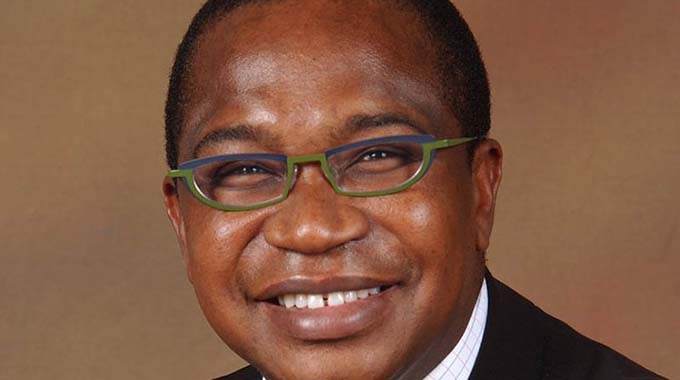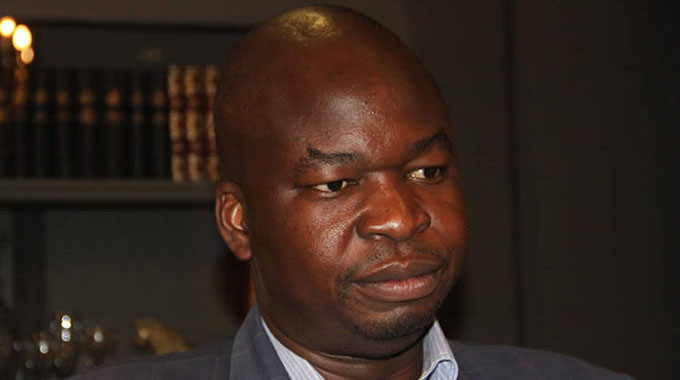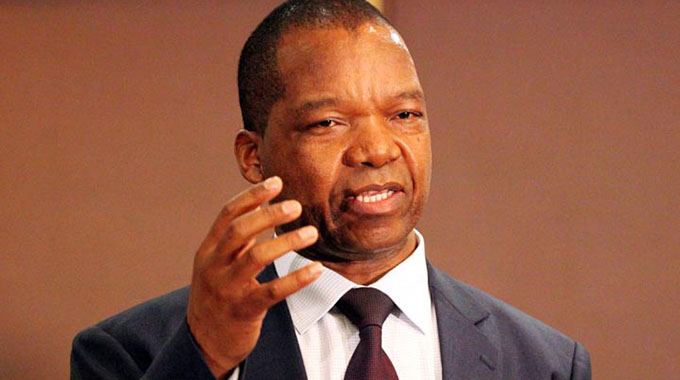Mthuli’s ‘medicine’ not so bitter, after all

Victoria Ruzvidzo In Focus
Zimbabwe’S economy has a bright future ahead and that future is not very far.
This is not mere rhetoric, wishful thinking or blind optimism. There is a grand plan already in motion that should see the sums adding up sooner rather than later.
An interaction that some colleagues in the media and myself had with the Minister of Finance and Economic Development Professor Mthuli Ncube and Permanent Secretary Mr George Guvamatanga yesterday was quite revealing. We all left the luncheon meeting with a different perspective about the 2019 National Budget and policy initiatives introduced so far.
Indeed, there was renewed hope in our camp that the economy would soon come right. Prof Ncube showed us the “V11s”, hence the fulcrum of the matter!
The two gentlemen were in their element yesterday and they appeared to have all their ducks in a row. Most of the measures and initiatives they spoke about yesterday as they responded to a barrage of questions from the media, albeit in an informal setting, are contained in the National Budget that Prof Ncube presented in the National Assembly last Thursday but we got a better interpretation and explanation of the intended outcomes.
As we report in our Business section, the Government registered a budget surplus of $29 million in October, the first in a long time.
Prof Ncube was quite ecstatic about this achievement and understandably so. This indicates that the country is on track to achieving a deficit of five percent of the Gross Domestic Product next year, from about 12 percent in 2018.
“This is the first time this has happened in the longest while . . . so we are walking the talk when it comes to fiscal discipline and fiscal consolidation and balancing that Budget,” he said earlier in the day as he addressed a press conference.
The high budget deficit stands out as probably the biggest challenge that the economy has faced in decades. It has been the root cause of many ills in the economy hence a solution in this regard will impact the economy significantly.
This, coupled with the curtailment of Government borrowings through Treasury bills and the Reserve Bank of Zimbabwe’s overdraft facility should yield results.

Mr Guvamatanga
Already we have also noted the stabilisation of the foreign currency “parallel” market where rates have been stable over the past few weeks, hovering around 300 percent and they are expected to fall further following the suspension of Treasury bill issuance and increased efforts to reduce the budget deficit.
“We have a plan and (you can) rest assured that it will bring results. We are sure of it,” said Prof Ncube, almost in a chorus with Mr Guvamatanga.
As he addressed the presser in the morning, he refuted claims by some of his critics that he had not pronounced measures to do with currency reform.
“Zimbabwe uses a basket of multiple currencies underpinned by the United States dollar, as well as bond notes, which were introduced as an export incentive scheme by the Reserve Bank of Zimbabwe (RBZ).
“Because that (a budget deficit) is a key driver of the value of a currency. The second driver of the value of a currency linked to the budget deficit is just pure money supply. If you look at the growth in the money supply in the last two months since we came into office as a new Government it has slowed down to basically zero; the banks’ balance sheet will show you that. And that’s important for maintaining the value of a currency.
“The other driver of a currency is inflation. Inflation jumped in October, but we now expect that inflation will begin to fall on a month-on-month basis going forward because that jump was a once-off, and now that we have done the structural adjustment upwards, inflation should drop in the month of November and December going forward. So again we won’t have any pressure from the inflation differential going forward,” he said.
“The fourth driver is the current account deficit itself, and we believe that the measures we have put in place will go a long way to reduce such demand.
“And all of this put together will go a long way in stabilising the currency and set the stage for our roadmap towards currency reforms.”
Prof Ncube and Mr Guvamatanga said by this time next year this economy would have a completely different complexion. We had no reason to doubt him as he eloquently laid out part of the plan and justified the plan.
Another achievement already is the announcement that by tomorrow all civil servants will have been paid their bonuses. For the first time in a long time they are receiving their bonuses in November instead of staggered payments that are often made well into the following year.
Minister Ncube said the way of doing things in Government had changed and the results would be there for all to see.
The two gentlemen also revealed that plans were afoot to bring order to the pharmaceuticals sector where pharmacies have been charging exorbitantly and in foreign currency for most drugs. They multiply the price by four or five if paying with bond notes or via a transfer
Furthermore, the re-engagement process with external partners is also gaining ground behind the scenes.
Zimbabwe has been on the offensive to re-engage its partners, particularly the West whose relations with this country have been acrimonious since the launch of the land reform programme in 2000.

Dr Mangudya
As Zimbabweans we now need to ride on the positive initiatives announced in the 2019 Budget and ensure that results are achieved. Such measures as the privatisation of State enterprises, public service staff audits and biometric registration to avoid the payment of ghost workers and reconfiguration of financing for Command Agriculture should transform this economy.
The five percent cut on salaries of senior civil servants is also one measure that reflects a seriousness by Government to turn things around.
The payment of duty in foreign currency for luxury vehicles and other products, though painful, will have the effect of discouraging foreign currency outflows and this is a plus to the economy in many ways.
It would be critical that Government adheres to its policy pronouncements including the announcement that Government vehicles will be parked after hours or during weekends and public holidays.
Indeed, the “austerity for prosperity”) mantra should be embraced by all as the economy moves to the next level.
Prof Ncube explained that funds raised through the two percent charge on electronic transfers would all be directed towards infrastructure developments. Roads would be repaired and new schools built, among other needs to improve the welfare of all Zimbabweans.
In God I Trust!









Comments